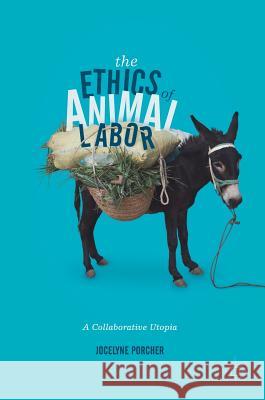The Ethics of Animal Labor: A Collaborative Utopia » książka
topmenu
The Ethics of Animal Labor: A Collaborative Utopia
ISBN-13: 9783319490694 / Angielski / Twarda / 2017 / 135 str.
Kategorie:
Kategorie BISAC:
Wydawca:
Palgrave MacMillan
Język:
Angielski
ISBN-13:
9783319490694
Rok wydania:
2017
Wydanie:
2017
Ilość stron:
135
Waga:
0.33 kg
Wymiary:
21.01 x 14.81 x 0.97
Oprawa:
Twarda
Wolumenów:
01
Dodatkowe informacje:
Bibliografia
Wydanie ilustrowane
Wydanie ilustrowane











